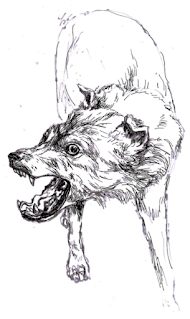 |
| Truth brought to light by Time (source) |
In an earlier post, I presented Oera Linda fragments with the word WÉRHÉD (truth) and listed its cognates in modern languages. I included the Latin varieties of veritas, without further contemplation.
It would be interesting to see if we can establish which variety of the word would logically be more original.
Latin ver- means true, but -itas seems to have no meaning, in contrast to -HÉD, which would make sense as a conjugation of the verb HÀVE (to have).
Thus, WÉRHÉD may be one of the many examples of Fryan words (and names) that would rather be the more original form than its Latin or Greek cognate.~ ~ ~
What I had not realised, until a reader of this blog pointed it out to me indirectly, is that one of the two words for lips (WÉRA, reviewed in this blog post) could be related.
The following fragment may be relevant, to explain a possible relation:
[158/11] When Wralda gave children to the mothers of mankind, he laid one language in all tongues and on all lips. This gift Wralda bestowed upon men to be used for letting each other know what must be avoided and what must be pursued to find happiness and hold it for eternity. Wralda is wise, good and all-foreseeing. As he knew that luck and happiness must flee from earth when malice can deceive virtue, he attached an equitable property to this language.
This property consists of the impossibility to tell lies or speak deceptive words without stammering or blushing, by which means the evilhearted can instantly be identified.
In case of a relation between WÉR (true) and WÉRA (lips), it would be curious, however, that the author of the fragment (Gosa) used the other term LIPPA here.











